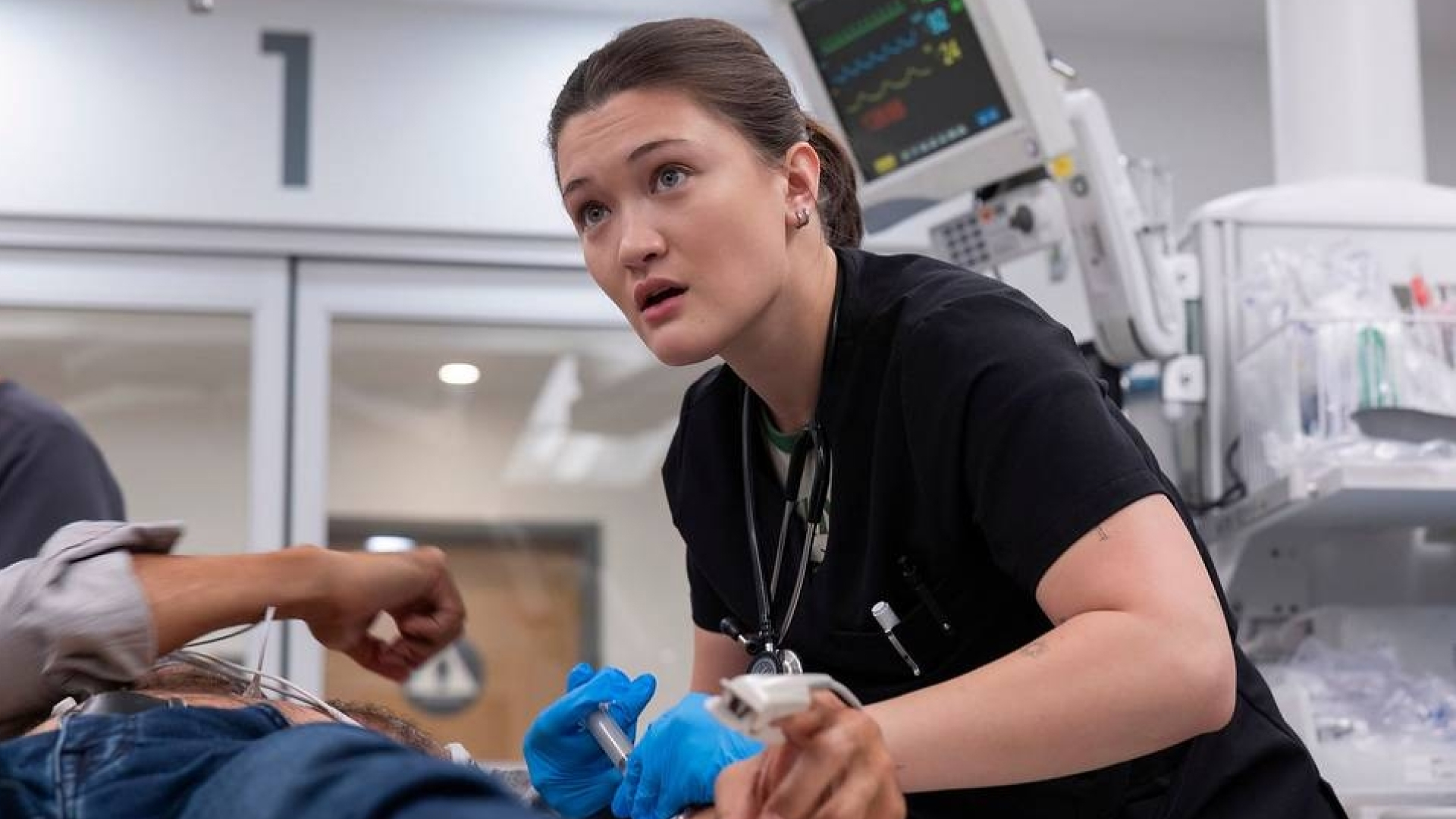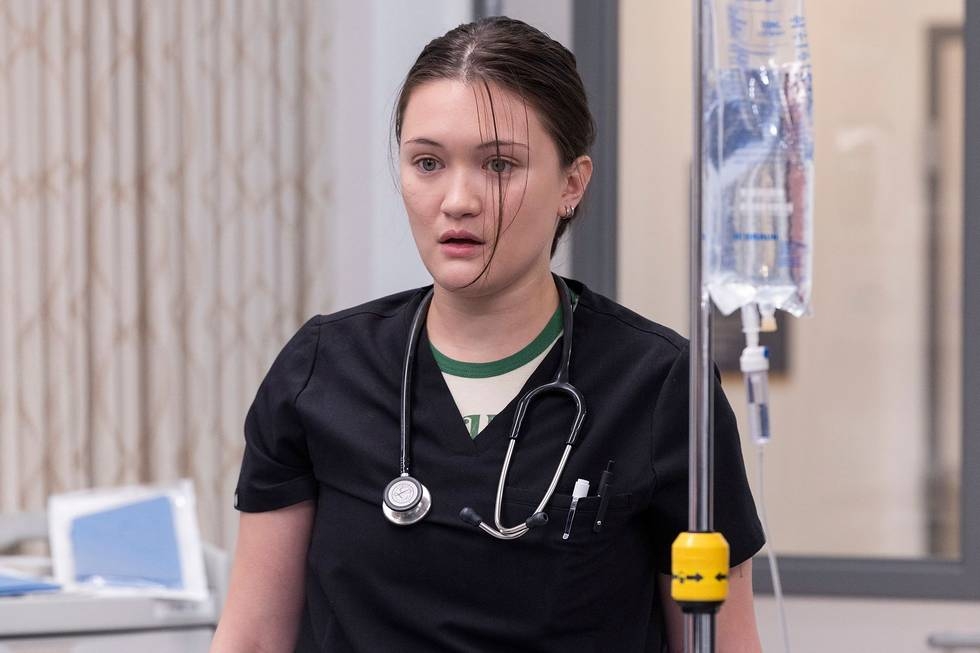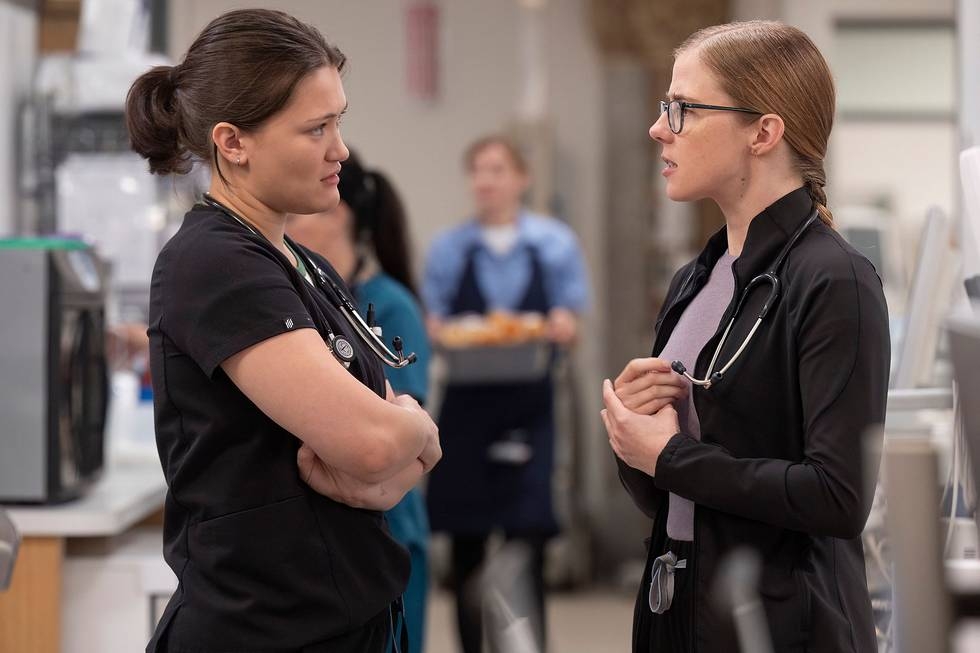We Owe Dr. Trinity Santos From 'The Pitt' an Apology
The season finale of the smash Max series proved that the most unlikable character on TV may just be the hero we all need.

Just halfway through the first episode of The Pitt, most fans had already made an easy diagnosis: Dr. Trinity Santos—an intern, recently tossed into the fast-paced trauma conveyor-belt that is the Pittsburgh Medical Center—was, in fact, the most unlikable character on TV. Over the course of 15 hours, that theory would be tested. Potential mass shooters, anti-vaxxers, incels, belligerent patients, and a psychiatric hold known simply as The Kraken, would pass through the emergency department doors. Residents would get screamed at, nurses physically assaulted, med students pissed on, and still, Trinity Santos (Isa Briones) would wind up on the top of our collective hit list.
She’s what’s known in medical circles as a “gunner.” Overly ambitious, unnecessarily competitive, ungovernable, and conceited. Santos was the antithesis of the show’s more timid, saccharine med students. They were overwhelmed, emotional, and constantly seeking approval. She was desperate to insert a chest tube. They were fainting at the sight of blood, getting sprayed by bodily fluids, and self-soothing to a lava lamp app. She was bullying people with insulting, uninspired nicknames and threading balloons into bleeding aortas. They gave out teddy bears. She gave a flirty surgical resident an open wound courtesy of an ill-timed scalpel pass.

Dr. Trinity Santos speaking to her patient Max (Aidan Laprete), who she suspects may be suicidal, in The Pitt season 1 finale, "9:00 P.M."
In other words, if TV has some kind of unlikability lab, that’s where Trinity Santos was cooked up.
It didn’t help that she was also the de-facto nemesis of the show’s resident bad boy, a blue-eyed, chiseled-jaw in black scrubs with a maverick streak who was impossible not to love. Patrick Ball’s Frank Langdon is the kind of thirst trap that can only be treated with a steady saline drip and a mandatory psych hold, and yet, Santos spent the better part of the season bickering with him over cases, questioning his authority, and investigating his misuse of patient meds. Her dogged crusade to expose his drug addiction might have been the right call, ethically speaking, but it certainly didn’t endear her to audiences already frustrated by her arrogance and lack of self-awareness. And it would’ve been easy, understandable even, for a show as ambitious as The Pitt—where each episode spans just one hour in the hellish bowels of a trauma one center—to keep a character like Santos two-dimensional. She’s the sarcastic shit stirrer meant to make us appreciate the Mel Kings and Victoria Javadis and Dennis Whitakers of the world. She’s more interested in cracking open a man’s sternum like a pistachio to see how things work than being a do-gooder healing the sick. These two things are not the same, but that doesn’t mean there isn’t a place for the Trinity Santoses of the world in medicine…and on TV.

Dr. Santos is what's known in medical circles as a "gunner."
The Pitt’s sixth episode is when the show began to make the case for Santos as a character worthy of, if not redemption, at least respect. When the wife of a patient reveals her suspicions that her husband’s been molesting their pre-teen daughter, Santos takes it upon herself to advocate for the girl despite pushback from her advising attendings. She’s bumbling and awkward with the kid and out of her depth with the man’s wife—a woman so desperate she’s begun microdosing her husband’s coffee with progesterone to curb his libido—but she refuses to accept that simply treating his wounds is the only difference she can make in an impossible situation. While he’s prone and practically paralyzed on a gurney, Santos delivers a devastating monologue, hinting at her own past experiences with predators in positions of power before quietly threatening the man should he ever hurt his daughter again. It’s a powerful turning point for her and for us—the first time cracks begin to form in her armor of sarcasm and snark to show the kind of vulnerability and compassion that lurk underneath.
And just as The Pitt constantly forced its characters to confront their own preconceived biases when treating patients, we were asked to confront why a character like Trinity Santos so easily got under our skin. After all, she was molded from the same cowboy doctor archetype as Ball’s Langdon, the pair so similar they couldn’t help but clash, two like-charged particles repelling each other in explosive fashion. What was amusing, endearing, and impressive about Langdon—his cocksure attitude, his thwarting of the rules, and his nonconformist approach to practicing medicine—was off-putting, irresponsible, and dangerous in Santos. Assertiveness, decisiveness, independence—these are traits we inadvertently think of as masculine, so when Langdon expressed them, they felt familiar and comfortable. But when Santos co-opted them, we called her difficult, unfeeling, and an asshole.
Just as 'The Pitt' constantly forced its characters to confront their own preconceived biases when treating patients, we were asked to confront why a character like Trinity Santos so easily got under our skin.
And she couldn’t win by playing the empathy card either. While the softness and sensitivity of someone like Dr. King (Taylor Dearden) was praised by her fellow doctors and viewers as refreshing and progressive, when Santos tried to exhibit the same—in her own, admittedly clumsy way—she was accused by her superiors of overstepping and possessing a bad bedside manner. Her sincere attempt to bond with Whitaker (Gerran Howell) and Javadi (Shabana Azeez) fell flat because they didn’t come with full-fledged apologies and self-censure. (As if anyone has time amidst all the antiseptic and adrenaline to say sorry for things that happened hours earlier.)
Get exclusive access to fashion and beauty trends, hot-off-the-press celebrity news, and more.
Even now, after her kickass heroics performed during a mass casualty event and her heartwarming campaign to prove to a suicidal college kid that his life was worth living, for some, that won’t be enough. The show’s season finale dug up nuggets of Santos’s childhood trauma, tying her experiences back to patient interactions that happened in earlier episodes in an attempt to answer our “why.”

Dr. Santos speaks to Dr. Melissa "Mel" King (Taylor Dearden), who has become a fan-favorite character.
Why was she so resistant to male authority? Why did she react so strongly to claims of child sex abuse? Because she had been preyed on before.
Why was she so harsh when confronting teenagers overdosing on fentanyl? Why couldn’t she ignore Langdon’s addiction problem? Why did she fight to treat a patient’s mental illness with the same attention and care afforded to his physical trauma? Because she lost someone in a horrific way and is constantly trying to prevent the same outcome in the people she treats.
She’s not pleasant or personable even when she’s extending an olive branch to Whitaker. After discovering he’s broke and living in the hospital, she’s still hurling harsh nicknames and psychologically torturing him for giggles. She’s not likable, but she’s not unlikable either. She’s flawed and nuanced, a female character so complex she can polarize audiences and inspire entire think pieces about her many, many layers. (This one included.)
She’s interesting, unpredictable even, and she’s someone who, despite her shortcomings, feels worth rooting for. She’s not the worst character on this show, but she might just be the most watchable.
Jessica is a journalist, editor, and TCA critic with a decade of experience covering pop culture, film, TV, women's sports, and more. You can find her covering film festivals, recapping some of your favorite shows, interviewing celebrities, and more for places like UPROXX, NYLON, Cosmopolitan, and The Hollywood Reporter. When she's not writing, she's busy being a full-time hype woman to her cat, Finn.